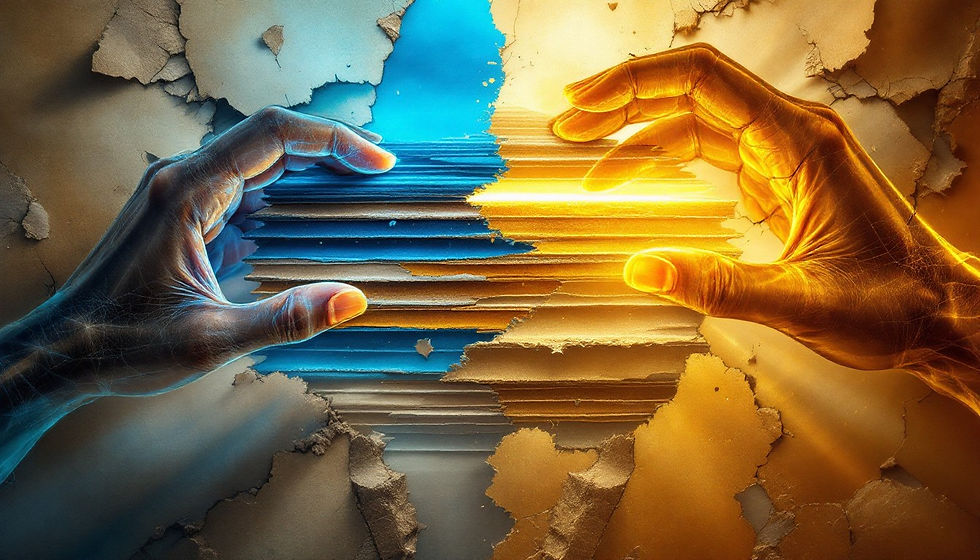No More Waiting: Living the Promise of a More Perfect Union Now
- Peggy O'Neal
- Sep 19, 2024
- 4 min read
The founders of the United States handed us an imperfect blueprint—a set of ideals and principles enshrined in the Constitution, designed to lay the foundation for "a more perfect union." While their vision was revolutionary for its time, it was not without its deep contradictions. Many of the Founding Fathers, who championed freedom and self-government, were themselves slaveholders. Women, Indigenous peoples, and those without property were excluded from the rights and privileges that were central to the American experiment in democracy.
In this light, we must acknowledge that our history, while filled with moments of progress, has also been one of exclusion, inequality, and injustice. And yet, the brilliance of the founders’ work lies in the idea that democracy is never a finished product. They gave us a living document and a system designed to evolve with each generation. The opportunity to form a "more perfect union" was not theirs alone to shape—it is a torch passed to every generation.
The Misconception of the Torch
However, in the modern era, this notion of passing the torch has taken on a troubling new form. Too often, we hear people saying, “The young people will take care of things. The next generation will bring about the change we need.” It’s comforting to believe that someone else—whether it’s future leaders, activists, or voters—will take on the responsibility of fixing the issues we face today. But this way of being risks deferring the urgent work that needs to be done, placing the burden on others to work for the better future we all desire.
The idea that “someone else will do it” is a dangerous myth. It assumes that the problems we face—whether they be threats to voting rights, racial inequality, climate change, or economic justice—can wait. When we rely on the next generation to act, we unintentionally teach them that it's acceptable to defer responsibility, showing them through our actions—rather than our words—that this is how change happens.
But the truth is, we only ever have now. The time to act is not in some distant future when others are ready to pick up the torch. The time to act is always the present, because the present is all we truly have.
Democracy as a Way of Living
Democracy is not something we can afford to think of as someone else’s responsibility. It’s not just a political system, nor is it a set of documents and institutions that function on their own. Democracy is a way of living. It requires us to engage—daily—with the values we claim to hold dear: equality, justice, and freedom for all. This is not something that can be fully outsourced to elected officials, activists, or future generations. We are the inheritors of the struggle, and we are also the torchbearers.
One of the greatest misconceptions is that democracy will somehow reach perfection, as though there is a final state where all injustices are corrected and the system functions flawlessly. The founders themselves acknowledged that they were laying the groundwork for something that would always be in the process of becoming, always striving for improvement. That means the work of building a more just and equitable society is never fully done—and it’s certainly not something we can put off for others to complete.
The Urgency of Now
Dr. Martin Luther King Jr. once wrote in his famous "Letter from Birmingham Jail": “We are now faced with the fact that tomorrow is today. We are confronted with the fierce urgency of now.” These words echo just as powerfully in our present moment. To live the promise of a more perfect union is to embrace the urgency of our time. We cannot afford to wait for others to act.
This doesn’t mean we dismiss the idea that change is gradual or that we don’t acknowledge the role of future generations. Progress, after all, is often slow and incremental. But it does mean that we must commit ourselves fully to the work that needs to be done today, rather than assuming someone else will carry the load.
A Legacy of Action, Not of Waiting
Our founders gave us more than a system of government—they gave us an invitation to act, to participate, and to shape the future of democracy. And while they were far from perfect, their greatest gift was the belief that we could continually strive toward something better. That striving is the heart of democracy.
Let’s be clear: democracy doesn’t survive because someone else is working for it. It survives when all of us take up the work, when we recognize that no generation can stand back and pass the responsibility to another. We are not just beneficiaries of this democratic experiment—we are its caretakers. We are its future. And that future is not waiting for someone else to take the reins.
The time to live the promise of a more perfect union is now. Not in a distant, idealized future, but today—through our words, our actions, our commitments, and our courage. This is not a moment to pass the torch, but a moment to light the way forward, together. Let us each carry that flame forward, for it is only by embracing our responsibility in the present that we can truly build the future we dream of.




Comments